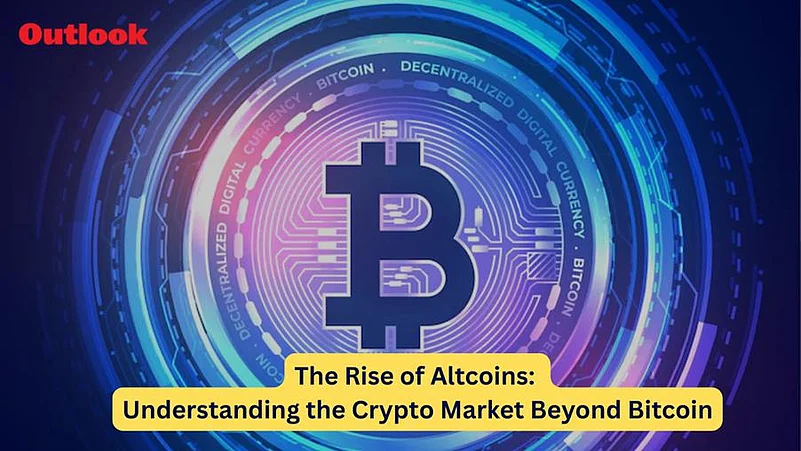When individuals mention the term "cryptocurrency," most still consider Bitcoin. This isn't surprising—Bitcoin was the initial one, and for many years, the sole digital money most were aware of. The universe of cryptocurrency, however, has expanded greatly beyond Bitcoin, and nowadays, thousands more coins and tokens exist and are referred to collectively as "altcoins." These so-called alternative coins are receiving notice, opening doors, and bringing new concepts into the financial system.
What Are Altcoins?
The term "altcoin" literally means "alternative coin"—any cryptocurrency except Bitcoin. There are popular ones such as Ethereum, Litecoin, and Solana, but thousands more for various purposes. Some are intended to be used in faster transactions, some for greater privacy, and some to enable smart contracts or particular platforms.
What is most interesting about altcoins is that they're not merely clones of Bitcoin. Most of them were developed with new features, objectives, and purposes in mind. While Bitcoin was created as a virtual substitute for money, altcoins tend to branch out and try new things and possibilities in the world of cryptocurrencies.
Why Are Altcoins Getting Popular?
The expansion of altcoins is being driven by a number of reasons. For one, individuals are seeking more than the sole cryptocurrency. Bitcoin has become pricey and, for some, slow to conduct transactions. Numerous altcoins provide faster speeds or cheaper fees, drawing users who desire a seamless experience.
Second, technological innovation is creating new platforms and services in the crypto space. For instance, most altcoins exist in blockchain networks that enable apps and services, including digital contracts, financial tools, or even ownership of art through NFTs. As such ideas expand, the coins that operate them become more sought after and utilized.
Third, individuals also happen to be more inquisitive and receptive nowadays. As knowledge about blockchain increases, so does curiosity about testing alternative choices. Altcoins provide individuals with an opportunity to experiment with new concepts and be a part of the continuous evolution of digital money.
How Altcoins Are Altering the Crypto Market
The popularity of altcoins is adding greater diversity and competition to the field of cryptocurrency. This isn't merely a question of having more options to invest in—it also challenges the whole sector to become better.
As more projects are being released into the market, developers are creating systems that are more energy-efficient, faster, and more secure. This manner, altcoins are paving the way to the future of digital currency. Rather than being centered on one technology such as Bitcoin, the market is shifting toward a flexible and diversified environment.
Altcoins are also bringing blockchain nearer to reality. Most of them drive real-world applications like payment systems, decentralized finance (DeFi), and peer-to-peer services. Such tools enable people to get access to financial services without a traditional bank.
Challenges and Considerations
While the rise of altcoins is thrilling, it's not without danger. The world of crypto is new, and not every altcoin is created with the same care or intent. Some won't have underlying substance or robust communities to help sustain their growth. Due to this, anyone interested in altcoins should take time to research and learn about what each coin represents.
One thing to keep in mind is that crypto prices tend to shift rapidly. Altcoins, particularly newer altcoins, tend to be more volatile than Bitcoin. This can mean huge profits, but can also mean abrupt losses. It's best to treat them with caution and realistic expectations.
Lastly, with all these altcoins out there, it is difficult to distinguish worthwhile projects from the noise. The most important thing is not to be caught up in hype but to find coins that address actual issues, provide valuable technology, and have clear objectives behind them.
Having A Glimpse At The Future: More Open And More Creative Crypto World
The emergence of altcoins teaches us that the cryptocurrency world is far larger than it used to be. It's not just about virtual cash anymore—it's about innovating how systems can function in more open, participatory, and effective manners.
The more that people become aware of altcoins and the concepts behind them, the more the crypto space will continue to expand and diversify. If you're a newcomer to digital currency or simply interested in what's going on, it's time to begin learning.
Altcoins might not supplant Bitcoin, but they are forging a new way forward. They provide new tools, new ideas, and more methods for individuals to engage with the digital economy. And in the next few years, they could be as crucial to the crypto narrative as Bitcoin was initially.

























